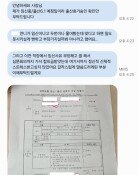Pres. Park criticizes pessimism at her Liberation Day speech
Pres. Park criticizes pessimism at her Liberation Day speech
Posted August. 16, 2016 06:48,
Updated August. 16, 2016 07:05
In her congratulatory speech for the 71st Liberation Day on Monday, President Park Geun-hye said, “Newly coined words that deny our glorious modern history and words disparaging our country are spreading, while the world is envying our nation,” in criticizing the practice of self-contempt such as use of "Hell Joseon" (which mean "hell-like South Korea"). President Park said that Korea must create a healthy community where people can live together with can-do spirit and self-confidence. “We must dispel victim mentality and pessimistic thinking that our fate will be determined by political dynamics between superpowers,” the president said, while underscoring the need for deployment of the terminal high-altitude area defense (THAAD) system in South Korea. There is no denial what she remarked is absolutely right, but it is the leader’s role to instill the public with self-confidence and "can-do spirit.”
Just like President Park does, ordinary Korean people also feel proud of Korean products such as automobiles, vessels, smartphones that are superior in quality and reliable, and K-pop culture of hallyu. However, the Korean government is not as high in quality or reliable as the smartphones, nor does the level of politicians meet the level of K-pop stars. In the global rankings of national competitiveness as measured by the World Economic Forum in 2015, Korea ranked 26th of the 140 countries surveyed, but the country was ranking almost at the bottom in government competitiveness such as policy transparency (123rd) and regulatory burden (97th). Notably, Korea will be able to prevent future generations from giving up by themselves only when the country makes efforts to understand pain and despair of the underprivileged and younger generation who mock themselves as "Hell Joseon" and "opo sedae" (generation that gives up five things, namely love relationship, marriage, childbirth, human relationship, and home ownership).
Various economic indicators and the youth unemployment in Korea have been breaking records of the worst. People have seen despair of youth, who finds few chances for employment, and their family, and resulting conflict between generations and social uncertainty further deepen during the Park Geun-hye administration. “The government will continue to implement education reform centered on field situations that nurture dreams and talents to ensure that education can provide genuine ‘ladder of opportunity,’” President Park said, but many people can hardly understand what "educational reform focused on field situations" has been made during the three and a half years under her administration.
She noted that there is prevailing culture of law enforcement influenced by the mass collective demand due to practice of distrust and law-disdaining. The public came to distrust the law, however, due more to the investigation and law enforcement organizations, which are saddled in the practice of self-serving behaviors by law enforcement agencies that have given up strict enforcement of the law as state authority, sense of special privilege, and moral hazard. More than anyone, Woo Byung-woo, senior presidential secretary for civil affairs, could be the icon of distrust by the public, as he stays in the post despite the scandal of privileged connection among Woo, Jin Kyung-joon and Kim Jung-ju that added to anger and despair among most of the public.
Encountering a crisis of multiple situations including national security, economy, and divide of public opinions, President Park apparently sought to gain momentum for administration of state affairs to overcome the political landscape of an opposition-controlled National Assembly, while stressing the formation of unity based on public pride. However, the public feel fatigued as they are forced to hear unilateral appeals that “We can do if we have a will” the way they did during the authoritarian era of the 1970s. People wish to see their president who meets with opposition leaders to make an appeal, and visit the site where people oppose the THAAD deployment, before making an appeal to the public.
박제균논설위원 phark@donga.com
Headline News
- N. Korea launches cyberattacks on S. Korea's defense companies
- Major university hospital professors consider a day off each week
- Italy suffers from fiscal deficits from ‘Super Bonus’ scheme
- Inter Milan secures 20th Serie A title, surpassing AC Milan
- Ruling and opposition prioritize spending amid tax revenue shortfalls







